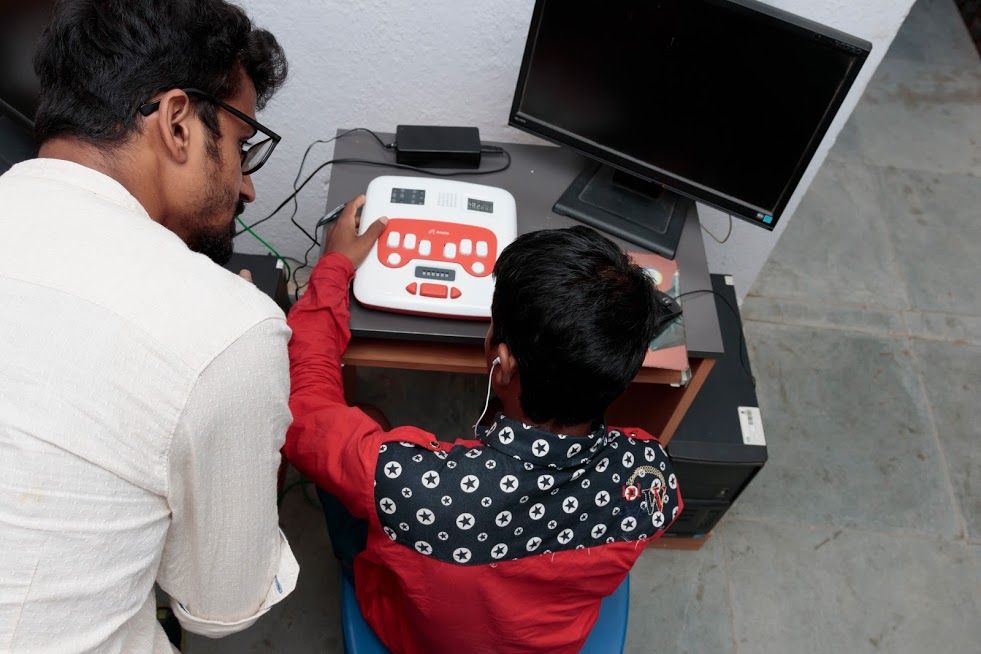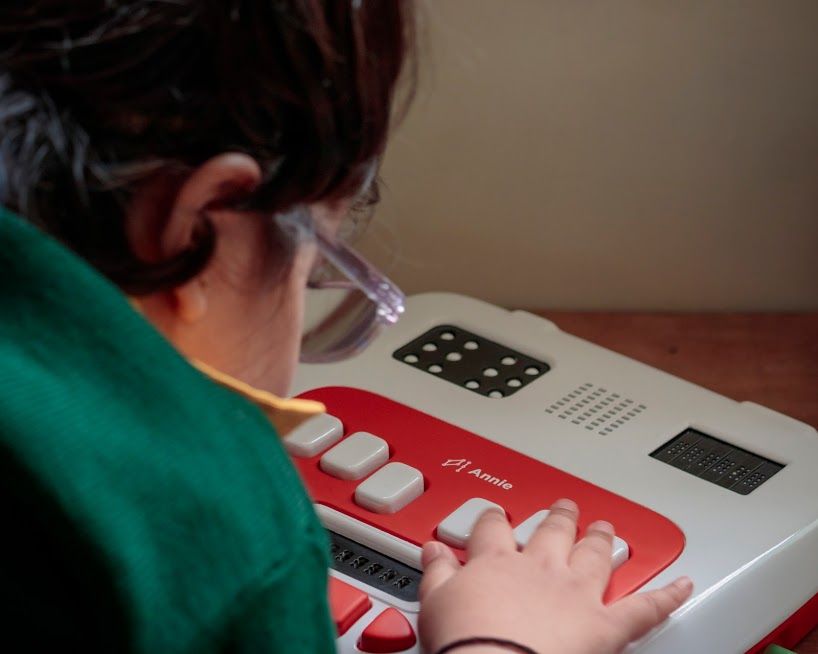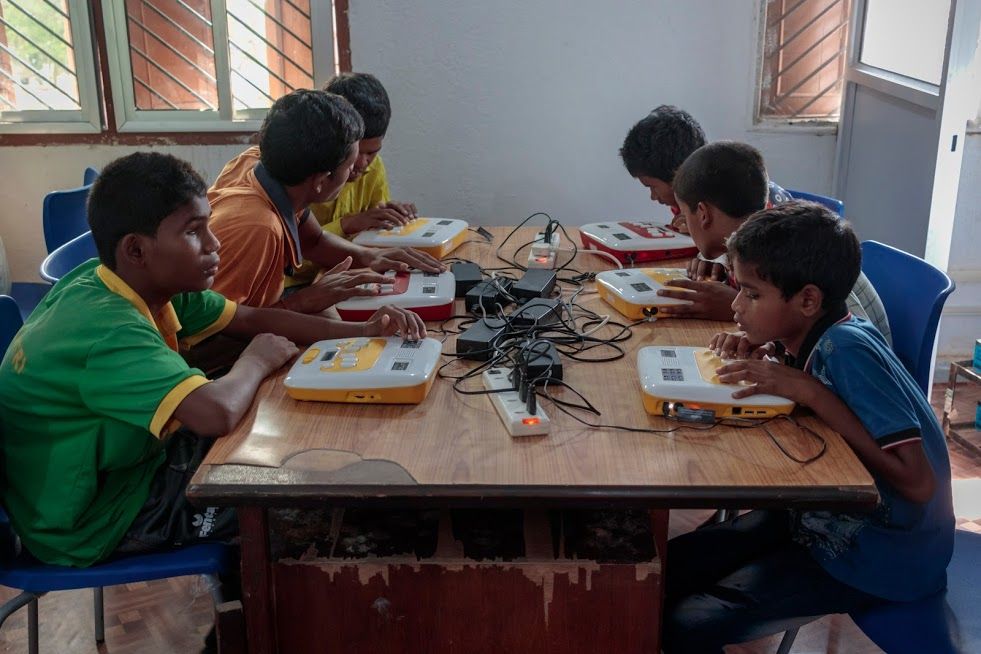Tech & Partnerships: How Thinkerbell Labs Enables Inclusive Education
Great products come from great ideas, ideas that customers want to buy into because of the unique strengths of that product. But for a successful company, it would be hasty to think a product sale is the finish line. For a company with a mission beyond the ‘product,’ it’s essential to step outside the company-customer binary. When a company blends innovative and compelling work while actively seeking to advance social good in particular, it can't just 'sell its product' - it has to forge mutually beneficial partnerships.
At Thinkerbell Labs, we work towards the mission of social inclusion, specifically, inclusive education through technological innovation in Braille learning. We collaborate with a range of people and organizations in order to actively participate in and contribute to this mission - not just now, but for years to come. Indeed, our flagship innovation, Annie, is part of a broader ecosystem that allows us to work closely with the visually impaired children who learn with Annie, as well as those who are invested in bettering these children’s learning outcomes. This is why we think of ecosystems, not products; partnerships, not sales; partners, not customers. We aim to be a uniquely progressive partner in the present and future of Braille learning - and we recognize the responsibility that comes with this mission.
Inclusion through Educational Technology
For children with visual impairments, learning is simultaneously a personal and social experience. Braille learning in particular is a time- and resource-intensive task. The learner typically requires lots of practice, and the teacher needs to pay close attention to these learners, their students, often at a 1-on-1 level. This has led to a severe crisis in Braille education, where not enough teachers are available to effectively teach the many visually impaired students who are eager to learn. It was in trying to address this crisis that we at Thinkerbell Labs arrived at our key insight - that technology can enable the learner to take charge of their education, while enjoying all the benefits of a classroom environment.

Educational technology initiatives have often significantly changed how learning and teaching has been accomplished. Remote learning over the internet, for example, has been touted as an useful educational tool during the COVID-19 pandemic. Simultaneously, however, these methods have faced criticism for not accounting for less privileged sections of society - such as persons with disabilities - whose conditions of access to technology are different.
At Thinkerbell Labs, however, we’ve always believed in the prime importance of education being accessible to, and inclusive of, many kinds of learners - it is this commitment that guided our development of Annie. Visually impaired children must have access to innovative methods of learning that take into consideration their specific sensory and educational requirements, and the modalities that they might be comfortable with while engaging with learning materials. This involves teaching Braille through pedagogies that empower the learner to understand their world through everyday experiences - which is the deeper purpose of education. It’s also important to remember that there are scores of children with disabilities in remote parts of India, (and the world) who may not have direct access to the internet, but might have access to a classroom, where they learn by themselves, with their peers, and with teachers, just like sighted children. So while the internet might not be the same gateway to learning as it is for the more privileged of us, this does not mean that visually impaired children be deprived of other technological innovations that are tailored to their needs.

This is the understanding that we at Thinkerbell Labs brought to our work. From our earliest days, when our founding team recognized the importance of learning Braille themselves before developing Annie, we recognized that we needed to put our mission before the innovation, to put the needs of Braille learners and teachers in classrooms that hadn’t been afforded the advances of educational technology before what we thought their learning should be like.
We wanted to preserve the child’s ability to learn Braille as they wanted to without needing the teacher’s constant attention. Over the course of several trials, working directly with visually impaired children, and in line with well-regarded existing curricula like the Royal National Institute for the Blind’s Hans On scheme, we developed interactive and gamified learning exercises for Braille reading, writing and typing. We’ve developed the world’s first Braille self-learning device in Annie. All of the games and lessons that the learner engages with lives on Annie itself, without the need for a constant internet connection to login and begin learning. Content and software updates are passed on to Annie whenever internet access is available. Supported by teachers, such pedagogies are a new experience in Braille education, an engagement with the tactile and aural elements of worldly experience that hadn’t been achieved with traditional methods of learning.
At the same time, our research showed us that the best way to support such education was to create Annie Smart Classes, that brought our innovation into the classroom environment, leveraging the relationship that students had with their teachers, and each other, supported by the Helios suite, which allowed teachers to measure students’ performance. This is where our particular approach to deployments was forged, with the understanding that we couldn’t “sell” such a concept - we had to partner with schools, administrations and other organizations to shape successful educational environments.
Beyond the ‘Sale’
The first deployment of an Annie Smart Class in India was at a government-supported blind school in Ranchi, Jharkhand. Since then, we’ve partnered with several administrations across the country, like the corporate foundations such as SELCO and Tech Mahindra Foundation, and non-profit organizations such as the National Federation of the Blind Maharashtra and Silver Linings to set up Annie Smart Classes in blind schools and in inclusive schools such as the Chantry Primary Academy in Luton, UK. These organizations have supported our work reaching the children who need it the most, at schools that can benefit from innovative Braille learning.
We value these partnerships we have built in support of our mission, because we understand that every partner is taking a leap with us into a future of inclusion and innovation based on the trust they have in our work and our team. When our partners subscribe to our vision they too go the extra mile in making the Annie Smart Classes they support successful. They believe in the future we are building and they want to be a part of this learning ecosystem. To describe those with whom we have such deep collaborations as ‘customers’ would be, to us, too simplistic.

It is, after all, through these relationships that we reach the partners we’re closest to, the children who learn with Annie. Because it’s only in partnering with those who engage, directly and everyday, with our learning ecosystem can we truly build an inclusive form of education. Along with our partnering organizations and schools, we’re constantly engaged in working with teachers and students to improve learning outcomes over an extended period of time - this is only possible with sustained communication, where we can work together to help realize Annie’s value, and hence measure the impact we’re making on our overarching mission of Braille literacy. This is also why we make it a point to have our team personally involved in the setting up of Annie Smart Classes at schools, so our partners are more comfortable interacting with us, helping us address their concerns and queries. By demonstrating our commitment to the innovations we are bringing to an existing learning ecosystem, we strive to ensure a smooth integration of the innovations of the Annie ecosystem.
The Mission Ecosystem
The mission of inclusive education keeps growing at Thinkerbell Labs. There’s a lot to do, and we intend to keep innovating our approaches to this work based on the twin pillars of technology and partnerships. Starting with Braille literacy enabled us to effectively understand the challenges that come with our work, and consider how we can best contribute to the social mission. At the same time, it has cemented our confidence in the Annie learning ecosystem, its value in the lives of visually impaired children and their educators, as well as the strength of partnering with organizations with a stake in the success of our ecosystem. At the end of the day, it is the human connection among everyone participating in our mission that makes it so successful.
